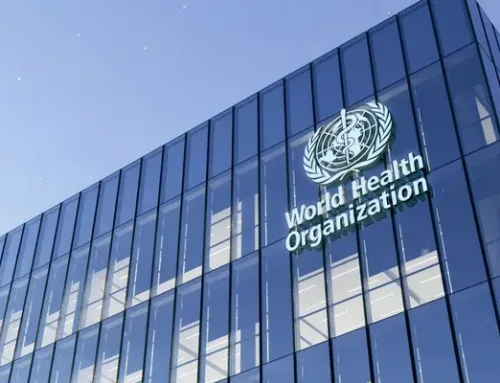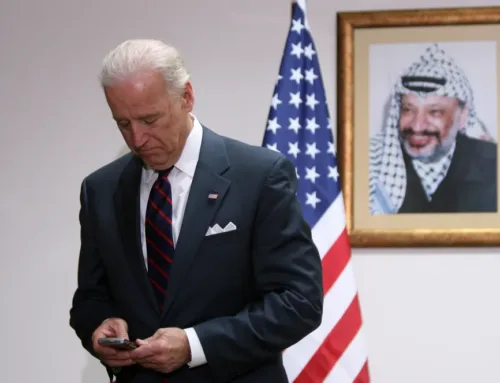Why is Germany now brutally re-evaluating Angela Merkel’s legacy?
The German ex-chancellor was once lauded as a commanding presence on the world stage. Her appeasement of China and Russia may prove the greatest mistake of her 16 years in power
Saturday. July 16, 2022
By Oliver Moody, Berlin
Reprinted from The Times [London]
Ayear ago this week, Angela Merkel flew home from Washington with what she regarded as a diplomatic triumph to crown her chancellorship.
The U.S. had agreed to wave through the completion of Nord Stream 2, a controversial natural gas pipeline from Russia to Germany that weakened Ukraine’s hand in its stand-off with Vladimir Putin.
In return, Merkel promised to fund green energy infrastructure in Ukraine and push for sanctions on Russia if it dared to use gas as a “weapon” to bully Kyiv.
Months later she retired from office with the kind of approval ratings normally associated with a subtropical dictatorship. Asked to evaluate her 16 years in power, 80 per cent of voters said they had been good. As late as the start of February, after three months out of the public eye, she remained the most popular political figure in the country.
“There had been 15 years of growth and rising prosperity,” said Nikolaus Blome, a Merkel biographer and veteran political journalist in Berlin. “People placed a tremendous amount of trust in her. I think a lot of them recognised themselves in her characteristics or in how she dealt with things.”
Today large parts of Merkel’s legacy are in ruins. Ukraine is fighting for its survival under a Russian artillery onslaught. Nord Stream 2 is effectively dead. Russia has turned its energy leverage not against Kyiv but against Germany and Europe, threatening one of the country’s worst economic crises since the Second World War.
For years Merkel had been lauded as the leader of the free world, said Andreas Fulda, a German political scientist at Nottingham University. “Now that she’s stepped down, the view has changed by almost 180 degrees.”
The end of an era
Putin’s invasion of Ukraine was the catylst for a fresh assessment of Merkel’s time as chancellor. The reappraisal has already gone far beyond her approach to the Kremlin. In recent weeks German commentators have also taken her to task over the crumbling of the country’s military capabilities, the logjam of domestic reform, her appeasement of Beijing, her slowness to get to grips with climate change and above all over her energy policies, from the withdrawal of her early support for nuclear power to her failure to prepare for a future without Russian gas.
Yet the debate about what Merkel did or didn’t do as chancellor obscures some uncomfortable questions about modern Germany itself.
With a few noteworthy exceptions such as the 2015 migration crisis, the chancellor tended to take the path of least resistance, allowing herself to be guided by her advisers, corporate interests, the demands of her coalition governments, the press and almost daily opinion polls.
Sometimes that led her to act against her better judgment. Last month, in her sole lengthy interview since she left office, Merkel, 67, told an audience in a packed Berlin theatre that she had never had any illusions about the Russian president or his willingness to resort to aggression. Nor, she said, had she really believed in Wandel durch Handel (change through trade), the prevailing German philosophy that autocratic regimes could be guided towards liberal democracy through the influence of commerce.
Merkel’s associates describe her view of the world as disconcertingly bleak, shaped by a deep reading of centuries of chaotic European history. She is said to regard today’s rules-based international order as a fragile and precarious exception to the norm, liable to disintegrate under pressure.
One of the toughest questions the war in Ukraine poses for Germany is why Merkel so often felt unable to act on those instincts or to ready her country for the storms she privately believed were brewing.
Part of the answer is that she had quite enough crises to confront in the present: the turmoil in the eurozone, the influx of more than a million non-European migrants, the pandemic. The more profound problem, though, is that she often yielded to an entrenched consensus across the realms of politics, business and the media.
That consensus is now beginning to loosen as Germans face up to a growing national identity crisis.
Three decades of assumptions have been burnt away in a matter of weeks: the limitless potential of dialogue, the civilising effect of trade ties, the permanence of a global security system underpinned by American military power, the pacifism of German voters, the impossibility of an all-out land war between European states, the idea of Putin as a rational international partner. The era that Merkel defined has gone.
A tragic heroine
“Back then 80 per cent of the German population subscribed to the idea that you need a good relationship with Russia — the journalists, too,” Blome said. “But we should have realised that we were leaving ourselves so dependent on a single energy supplier. It wasn’t a secret. It just wasn’t really discussed widely enough. Now it’s coming back to haunt us.”
Since leaving office Merkel has generally kept her head down, although she is thought to advise her successor, Olaf Scholz, behind the scenes in frequent telephone calls.
Asked how she had spent the first months of her retirement, she said she had been taking long, rainy walks on the Baltic coast and listening to audiobook adaptations of Shakespeare tragedies, particularly Macbeth.
A more timely choice might have been Julius Caesar, in which the downfall of a once invulnerable leader degenerates into a vicious battle over his legacy. Like Mark Anthony, the German commentariat has now come not to praise Merkel, but to bury her.
Even the Christian Democractic Union (CDU), the party she led to four Bundestag election victories, has planted a few knives in her back. In January its members elected Friedrich Merz, her old right-wing arch-rival, as their new leader. The party has already reversed some of her policies, calling for Germany’s three remaining nuclear power plants to be kept online and an end to her ban on fracking.
Yet the judgments of future historians may be more nuanced, and fall at least as heavily on the wider German elite as they do on Merkel’s leadership.
Nearly a decade ago, in the final chapter of his Merkel biography Die Zauder-Künstlerin (The Artist of Dithering), Blome pondered what she would want to read about herself in the history books.
“I don’t think much has changed,” he said. “She’ll still be looking at Europe — the way she somehow held the whole business together and held Germany together through three great crises.
“But now the overall verdict will be different. I think it will still include those [successes], but of course there will now be a number of shortcomings that have been exposed much more swiftly and dramatically by the war in Ukraine. For sure, she’s not to blame for the war itself, but she and her record are both among the casualties of this war, which Germany was in almost no way prepared for.”
Politics not principle
Fulda argues that in the end historians will judge Merkel’s handling of China rather than Russia to be the most significant error of her years in power.
In 2005, while she was still the leader of the opposition CDU, she campaigned for the chancellorship with pledges to liberalise the tax system and abandon Germany’s conciliatory, pro-business approach to Beijing.
After scraping a narrow victory, Merkel was left with little choice but to form a “grand coalition” with her party’s strongest opponent, the centre-left Social Democrats.
At first she tried to make good on her promise to stand up to China, inviting the Dalai Lama to Berlin in 2007. Yet eventually the pressure to change course became too great.
“I see her as a chastened reformer who had her wings clipped early on,” said Fulda, a China scholar. “When she tried to be principled, she failed. Early on, her ideas about reform, and especially about tax reform, were deeply unpopular.
“They almost cost her the election. Perhaps one of the lessons she drew from that debacle is that being principled on certain policies was dangerous because it might not lead to electoral success.”
Over the years that followed Merkel paid 12 state visits to Beijing, each time with a gaggle of German business leaders in tow. She lobbied energetically on their behalf, even flying the flag for Wirecard, a once-feted German financial technology giant that has since collapsed in the country’s biggest fraud scandal.
The initial economic dividend was enormous. China overtook the U.S. as Berlin’s biggest trading partner, trebling its share of German exports in the course of 15 years. Last year Germany bought €142 billion worth of goods from China and sold €104 billion in return. One in every five cars sold in China is a Volkswagen.
German criticism of Beijing’s record on human rights and the rule of law was muted at best. One former senior adviser to Merkel argues that Germany repeatedly raised these issues behind the scenes. Yet apart from an agreement in 2018 for China to release Liu Xia, the wife of the Nobel peace prizewinning dissident Liu Xiaobo, Berlin has few tangible returns to show for its “quiet diplomacy”.
At the end of 2020 Merkel brokered a contentious investment pact between China and the European Union in the hope of further opening up the Chinese market to German businesses, sweetened with side deals for Airbus and Deutsche Telekom.
The public backed her: that same year, during the twilight of the Trump era, a poll found that 36 per cent of Germans thought it was more important to have good relations with China than with the U.S., the traditional guarantor of Germany’s security and prosperity. Only 37 per cent held the opposite view.
On the hook for billions
Now the Russian attack on Ukraine has underscored the dangers of relying too heavily on a single trading partner, and especially on an autocracy with designs on its neighbours’ territory.
Concerns about the strategic risks of Germany’s gamble on China have snowballed.
Beijing’s unpredictable regulations, disregard of intellectual property rights, hardline zero-Covid doctrine and worsening image in the West have made life deeply uncomfortable for many of the German businesses that have established a bridgehead in the country. A once lucrative market has become a formidable and potentially hostile competitor.
Yet unpicking this economic entanglement will be even harder than weaning Germany off Russian gas. Fulda estimates that up to €200 billion of German investment in China could be held to ransom in the event of any political dispute.
A survey in March found that 46 per cent of German manufacturers depended on China for at least part of their supply chains. Nothing illustrates the dilemma as starkly as Germany’s dash for clean energy: Beijing now dominates the solar and wind technology markets to such an extent that the green transition will be virtually impossible without Chinese components.
Fulda said Merkel had effectively tied the hands of her successors, including Annalena Baerbock, the Green foreign minister, whose instincts on China are much more hawkish.
“If Baerbock argues for decoupling or a more assertive China policy, these companies will be held hostage or subjected to economic coercion,” he said. “This will hamper any effort by the German government to assert itself against China.”
It is “unforgivable” that Merkel did not do more to act on her own pessimism about the survival chances of liberal democracy, Fulda added. “She was worried about China and she was concerned about the developments in the U.S. But she didn’t really convey her pessimistic world view to the German public,” he said. “She could have prepared the public for difficult times, but she didn’t.”










Leave a Reply, please --- thank you.